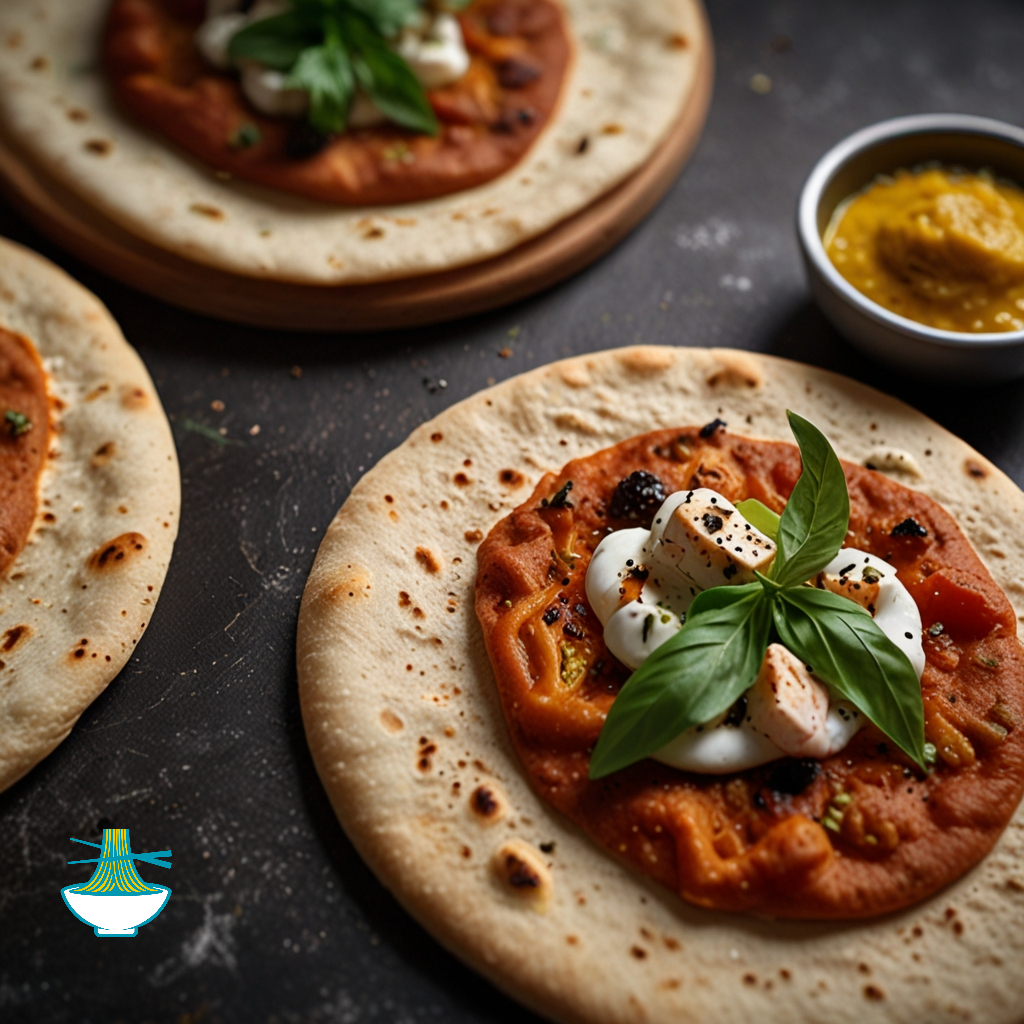Al Aysh, a staple in Emirati cuisine, is a type of flatbread cherished for its versatility and rich cultural heritage. Originating from the United Arab Emirates (UAE), this bread has been a cornerstone of meals for generations. Its recipe typically involves a simple mix of flour, water, salt, and yeast, which is kneaded into dough, left to rise, and then flattened into round discs. Traditionally, it's baked in a hot oven or on a griddle until it puffs up and forms a golden crust. Al Aysh's history intertwines with the UAE's nomadic lifestyle, where portable, hearty bread was essential for sustenance during long journeys across the desert. Today, it remains a cherished accompaniment to various dishes, from savory stews to aromatic dips, embodying the rich culinary traditions of the region.
Ingredients:
- 3 cups all-purpose flour
- 1 teaspoon salt
- 1 tablespoon active dry yeast
- 1 cup lukewarm water
Method:
1. In a large mixing bowl, combine the flour and salt.
2. In a separate small bowl, dissolve the yeast in the lukewarm water.
3. Make a well in the center of the flour mixture and pour in the yeast mixture.
4. Mix until a dough forms.
5. Knead the dough on a lightly floured surface for about 5-10 minutes, or until smooth and elastic.
6. Place the dough in a greased bowl, cover with a clean kitchen towel, and let it rise in a warm place for about 1 hour, or until doubled in size.
7. Preheat the oven to 475°F (245°C) and place a baking sheet or pizza stone inside to heat.
8. Punch down the risen dough and divide it into 6 equal portions.
9. Roll each portion into a ball and then flatten into a disc shape, about 1/4 inch thick.
10. Carefully transfer the flattened dough discs onto the preheated baking sheet or pizza stone.
11. Bake for 5-7 minutes, or until the bread puffs up and forms a golden crust.
12. Remove from the oven and serve warm with your favorite dishes. Enjoy your homemade Al Aysh!
Nutrition Value:
1. All-purpose flour (3 cups):
- Calories: Approximately 480 kcal
- Carbohydrates: Around 102 grams
- Protein: Roughly 12 grams
- Fat: Minimal, usually less than 2 grams
- Sodium: Varies based on brand, typically around 5-10 mg per tablespoon
- Cholesterol: None
- Vitamins: Contains small amounts of B vitamins, including thiamine (B1) and riboflavin (B2)
- Minerals: Contains iron, magnesium, and selenium
- Nutritional benefits: Provides energy from carbohydrates, essential for baking and forming the structure of the bread. Contains some protein for muscle repair and growth, along with small amounts of vitamins and minerals that support overall health.
2. Salt (1 teaspoon):
- Calories: Negligible
- Carbohydrates: None
- Protein: None
- Fat: None
- Sodium: Approximately 2,300 mg (daily recommended limit for adults)
- Cholesterol: None
- Vitamins: None
- Minerals: Provides sodium, essential for fluid balance, nerve function, and muscle contractions
- Nutritional benefits: Enhances flavor and helps regulate the fermentation process when used in yeast bread. However, it should be consumed in moderation due to its high sodium content.
3. Active dry yeast (1 tablespoon):
- Calories: Around 23 kcal
- Carbohydrates: Approximately 3 grams
- Protein: Roughly 3 grams
- Fat: Minimal, usually less than 1 gram
- Sodium: Varies but typically less than 5 mg
- Cholesterol: None
- Vitamins: Rich in B vitamins, particularly thiamine (B1) and riboflavin (B2)
- Minerals: Contains small amounts of iron, magnesium, and zinc
- Nutritional benefits: Acts as a leavening agent, helping the dough rise by producing carbon dioxide gas. Also a good source of B vitamins, which support metabolism and energy production.
4. Lukewarm water (1 cup):
- Calories: None
- Carbohydrates: None
- Protein: None
- Fat: None
- Sodium: None
- Cholesterol: None
- Vitamins: None
- Minerals: None
- Nutritional benefits: Hydrates the dough and helps activate the yeast. Essential for the dough-making process but does not contribute significant macronutrients or micronutrients.


Comments